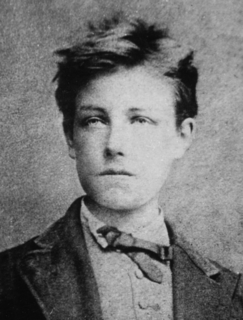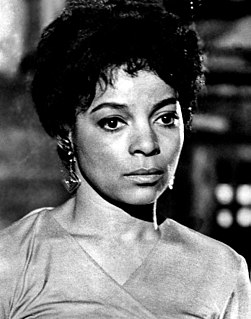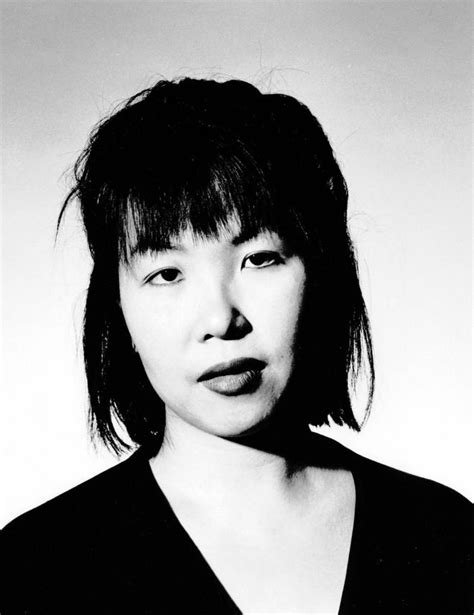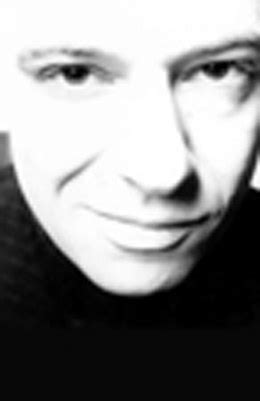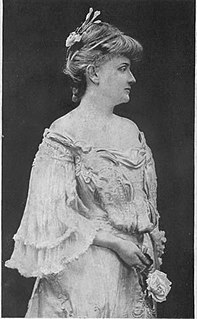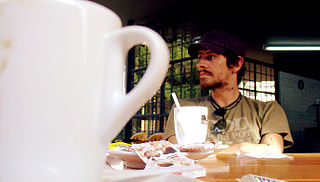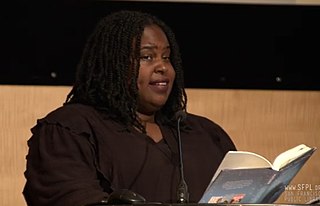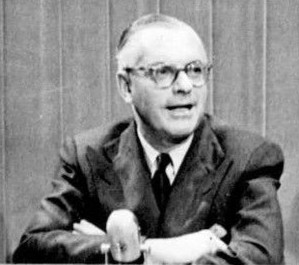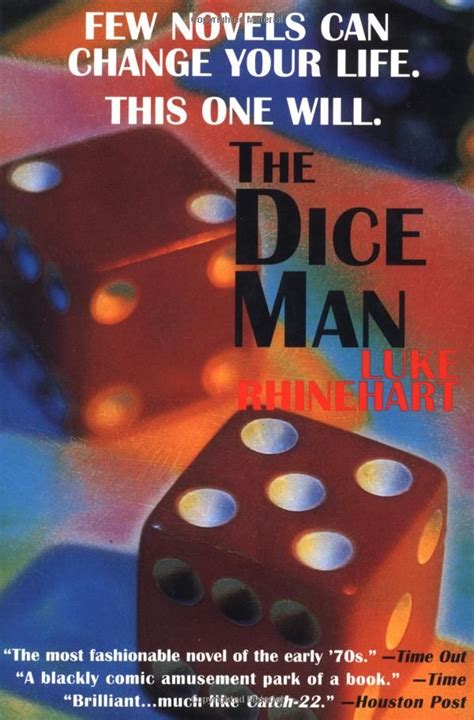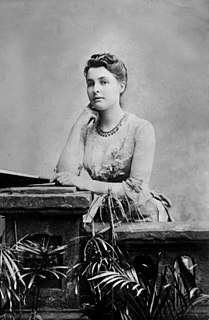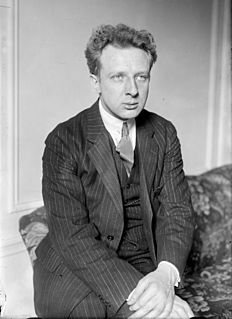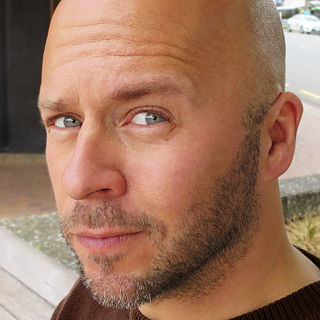Top 1186 Authors Quotes & Sayings - Page 19
Explore popular Authors quotes.
Last updated on April 22, 2025.
Christian socialism”). This is a difficult concept for modern liberals to grasp because they are used to thinking of the progressives as the people who cleaned up the food supply, pushed through the eight hour workday, and ended child labor. But liberals often forget that the progressives were imperialists, at home and abroad. They were the authors of Prohibition, the Palmer Raids, eugenics, loyalty oaths, and, in its modern incarnation, what many call “state capitalism.
...I is another. If the brass wakes the trumpet, it’s not its fault. That’s obvious to me: I witness the unfolding of my own thought: I watch it, I hear it: I make a stroke with the bow: the symphony begins in the depths, or springs with a bound onto the stage. If the old imbeciles hadn’t discovered only the false significance of Self, we wouldn’t have to now sweep away those millions of skeletons which have been piling up the products of their one-eyed intellect since time immemorial, and claiming themselves to be their authors!
In researching literary agents I did what the books tell you to do: I looked at the acknowledgments page of a book that was similar to mine. Happily, that author thanked his agent. I looked up the agent on the web and found out that he not only represented authors writing books similar to mine, but I knew some of his clients! So, I sent in the manuscript, and they decided to represent it.
The freedoms we have in Russia are just leftovers. Freedom of travel, which was completely nonexistent in the Soviet Union; artistic freedom - so far, that's doing fine too, virtually everything can be published. Although with some books that are too edgy politically, or are especially undesirable, the authors are already running into difficulties. Theaters that produce provocative plays, or clubs that host undesirable events often find themselves on the receiving end of fire safety inspections and fines.
We may observe in humorous authors that the faults they chiefly ridicule have often a likeness in themselves. Cervantes had much of the knight-errant in him; Sir George Etherege was unconsciously the Fopling Flutter of his own satire; Goldsmith was the same hero to chambermaids, and coward to ladies that he has immortalized in his charming comedy; and the antiquarian frivolities of Jonathan Oldbuck had their resemblance in Jonathan Oldbuck's creator.
Spike Lee made such a difference in terms of black filmmakers, the subtleties - those authors, those writers who write from love, and those who write from that lofty position of superiority.I felt he took aspects of the black experience in America and held it up for us to see. He tried to put it in perspective. He did put it in perspective in his unique way.
At the end of the day, some authors will endure and most, including some very good ones, will not. Why do I think reading is important? It is such an effective medium between mind and mind. We think largely in words. A medium made only of words doesn't impose the barrier of any other medium. It is naked and unprotected communication. That's how you get pregnant. May you always be so.
My hope is that 'The New World Haggadah' will open a new world for readers who will see our heritage through a multilingual prism. I wanted to feature medieval and renaissance authors, resistance in World War II, crypto-Jews and activists during the Dirty War in Latin America, songs of protest, and songs of hope.
There are three distinct kind of judges upon all new authors or productions; the first are those who know no rules, but pronounce entirely from their natural taste and feelings; the second are those who know and judge by rules; and the third are those who know, but are above the rules. These last are those you should wish to satisfy. Next to them rate the natural judges; but ever despise those opinions that are formed by the rules.
Without the book business it would be difficult or impossible for true books to find their true readers and without that solitary (and potentially subversive) alone with a book the whole razzmatazz of prizes, banquets, television spectaculars, bestseller lists, even literature courses, editors and authors, are all worthless. Unless a book finds lovers among those solitary readers, it will not live . . . or live for long.
In my twenties, it was so important for me to show people I had all these other books and these other sorts of writing in me, .. A lot of authors, if their first book is a success, they're terrified to write a second one. But in my case, since the first book wasn't considered a literary book, I was really determined to show people I could do other types of writing.
At its heart, this book touches on a mystery of economics: what exactly is happening in our world, and why does it often work so well? As the authors show, apparently messy systems - such as untidy desks - actually exhibit a high degree of order: the piles of paper are close to hand, and the most important documents tend to make their way to the top while un-needed ones sink to the bottom. If the mess works, why mess with it?
When you write your first novel you don't really know what you're doing. There may be writers out there who are brilliant, incisive and in control from their first 'Once upon a time'. I'm not one of them. Every once upon a time for me is another experience of white-water rafting in a leaky inner tube. And I have this theory that while the Story Council has its faults, it does have some idea that if books are going to get written, authors have to be able to write them.
I find it interesting that authors of fantasy and science fiction novels are rarely asked if their books are based on their personal experiences, because all writing is based on personal experience. I may not have gone on an epic quest through a haunted forest, but the feelings in my books are often based on feelings I've had. Real-life events, in fantasy and science fiction, can take on metaphorical significance that they can't in a so-called realistic novel.
Men's memoirs are about answers; women's memoirs are about questions. Most male authors want to look good in their memoirs and have a place in posterity, while most women know that posterity is what happens when you no longer care. Women want to connect with others here and now; they couldn't care less about legacy!
When Christians speak of the authority of Scripture, because Christians believe that this word, even though it's mediated through many different human authors, nevertheless is God breathed and is revealed by God and is utterly reliable and all that it says, with all of its different literary genres, it's trustworthy and without mistake or distortion. It is trustworthy and therefore, because it is from God it has God's authority.
For them (the peoples of the Soviet Union) We cherish the warmest paternal affection. We are well aware that not a few of them groan beneath the yoke imposed on them by men who in very large part are strangers to the real interests of the country. We recognize that many others were deceived by fallacious hopes. We blame only the system with its authors and abettors who considered Russia the best field for experimenting with a plan elaborated years ago, and who from there continue to spread it from one of the world to the other.
...most men have bound their eyes with one or another handkerchief, and attached themselves to some one of these communities of opinion. This conformity makes them not false in a few particulars, authors of a few lies, but false in all particulars. Their every truth is not quite true. Their two is not the real two, their four not the real four; so that every word they say chagrins us, and we know not where to begin to set them right.
Authors are far closer to the truths enfolded in mystery than ordinary people, because of that very audacity of imagination which irritates their plodding critics. As only those who dare to make mistakes succeed greatly, only those who shake free the wings of their imagination brush, once in a way, the secrets of the great pale world. If such writers go wrong, it is not for the mere brains to tell them so
Unbeknownst to me, two readers of the posts, both published authors, contacted their agent, Bill Jensen, within 24 hours of each other, encouraging him to drop me a line. Which he did. He shared his extensive publishing background with me, and prayerfully offered to work out a proposal and to see if God opened any publishing doors? I never get over the unexpected ways of God.
The thing that helps me do a good job is that I don't feel the need to explain everything about the world to my reader. I'm not writing a history text on the Four Corners. I'm telling a story that's set there. The setting belongs in the background for the most part, and it's easy for fantasy authors to forget that. That's one of the unfortunate parts of Tolkien's legacy, in my opinion. Read the first hundred pages of the Fellowship of the Ring and you start to get pissed, "Shut up about the Shire's museums! Isn't the world supposed to be in peril or something?"
I started to read James Baldwin very early on in my life. At a time, as a young adult in the Sixties, when there were not that many authors in whom I could recognize myself, he was an important guide and mentor to me as he was to many others. He helped me understand who I was and decipher the world around me. He gave me the words to defend myself and the argumentative rhetoric to master discussions with others.
There are many readers of the book, who don't know anything about the authors and the artists. There is more than one author. It doesn't matter, if you can't make the reader dive into the story and surround him with that environment and those characters. That's an experience that lasts longer than figuring out who did what. I think that's what makes our working relationship better, it helps us to make a book that feels unique and not like different voices.
A lot of authors see their book being banned or challenged as a badge of honor. But for me, it's nothing but frustrating and upsetting. I hear from readers that my work encouraged them to ask for help or reach out to someone about the situation they're in. When you hear stories like that on a daily basis and then hear adults call for your work to be banned, it's proof of why the stigma around these issues is so dangerous.
Personally, I always wondered about authors and celebrities who loudly declared there was no God. It was usually when they were healthy and popular and being listened to by crowds. What happens, I wondered, in the quiet moments before death? By then, they have lost the stage, the world has moved on. If suddenly, in their last gasping moments, through fear, a vision, a late enlightenment, they change their minds about God, who would know?
I have learned patience, for sure. Pre-publication is a long waiting game, especially for authors of picture books. We write the manuscript, sign the contract, and wait. It takes a while for the art director to find an illustrator and then the illustrator works on the sketches, and depending on those first round of sketches, it could be a few more months before you see a final illustration. I was surprised at how long it takes for all the pieces to come together.
Reading is a pleasure of the mind, which means that it is a little like a sport: your eagerness and knowledge and quickness count for something. The fun of reading is not that something is told to you, but that you stretch your mind. Your own imagination works along with the authors, or even goes beyond his, yields the same or different conclusions, and your ideas develop as you understand his.
Beware of books. They are more than innocent assemblages of paper and ink and string and glue. If they are any good, they have the spirit of the author within. Authors are rogues and ruffians and easy lays. They are gluttons for sweets and savories. They devour life and always want more. They have sap, spirit, sex. Books are panderers. The Jews are not wrong to worship books. A real book has pheromones and sprouts grass through its cover.
To change man, the audience by which he judges himself must be changed. A man is defined by his audience: by the people, institutions, authors, magazines, movie heroes, philosophers by whom he pictures himself being cheered and booed. Major psychological disturbances, 'identity crises', are caused when an individual begins to change the audience for whom he plays: from parents to peers; from peers to the works of Albert Camus; from the Bible to Hugh Hefner.
I had some very, very fond memories of the people I worked with and the authors I worked with - and I won't mention any names - but as I have been traveling through rural Maine over the past few weeks, one of my favorite things to do is to go into bookstores on the side of rural routes and paw through the old copies of Tom Clancy and Trevanian books they have in there for weird old 1970s thrillers that I haven't read yet.
My readers, who may at first be apt to consider Quotation as downright pedantry, will be surprised when I assure them, that next to the simple imitation of sounds and gestures, Quotation is the most natural and most frequent habitude of human nature. For, Quotation must not be confined to passages adduced out of authors. He who cites the opinion, or remark, or saying of another, whether it has been written or spoken, is certainly one who quotes; and this we shall find to be universally practiced.
On the pilgrim's path each man must become Moses, going on a vision quest to some mountaintop and returning with the ten or twenty commandments that he holds sacred. So long as we obey or break the rules that have been set up for us by the Giants - Parents and other Authorities - we remain good or bad children. Growing into the fullness of our humanity means that we become co-authors of the rules by which we will agree to have our lives judged.
Whatever we may say against collections, which present authors in a disjointed form, they nevertheless bring about many excellent results. We are not always so composed, so full of wisdom, that we are able to take in at once the whole scope of a work according to its merits. Do we not mark in a book passages which seem to have a direct reference to ourselves? Young people especially, who have failed in acquiring a complete cultivation of mind, are roused in a praiseworthy way by brilliant passages.
I was in the second year of my PhD when I first had the idea - I'd recently started working as a translator, which meant firstly that I was hearing about amazing-sounding books from other translators, and also that I was getting enough of an insider's view of the publishing industry to be aware of all the implicit biases that made it so difficult for these books to ever get published, especially if they weren't from European languages (harder to discover, editors can't read the original, lack of funding programmes, authors who don't speak English).
I teach a graduate seminar called "Theorizing Improvisation" that is pretty interdisciplinary, but really makes students deal with black studies seriously. A lot of authors of color, a lot of women of color - those become central to the intellectual trajectory. It considers music, but it also considers areas of thought that might seem unrelated to music. That's partly because we're expanding the notion of what music is beyond objects, beyond scores, beyond things.
Many writers write across difference of one kind or another. Sometimes the difference is large and recognizable: gender, or race, or religion, or sexuality. And sometimes the differences are smaller. ... Where authors get into trouble is in trying to make those different characters stand in for whole groups of people, or for creating characters only to fetishize or explore their supposed otherness. Your character can be wildly different from you, as long as he's written with respect and, moreover, specificity.
Seine et Danube was launched in 2003 with the help of Romanian authorities who had finally realized the necessity of promoting literature and Romanian culture in general. Along with focusing on the literature of the countries the Danube traversed (with an emphasis on Romania), we printed work that interested us from the banks of the Seine: French and French-Romanian authors like Cioran and Fondane. We dedicated our last edition to surrealism and Esthetic Onirisme.
Who were my mentors in poetry and literature? This is a matter of opinion. Some see in my books the influences of authors whose names, in my ignorance, I have not even heard, while others see the influences of poets whose names I have heard but whose writings I have not read. And what is my opinion? From whom did I receive nurture? Not every man remembers the name of the cow which supplied him with each drop of milk he has drunk.
From authors whom I read more than once I learn to value the weight of words and to delight in their meter and cadence -- in Gibbon's polyphonic counterpoint and Guedalla's command of the subjunctive, in Mailer's hyperbole and Dillard's similes, in Twain's invectives and burlesques with which he set the torch of his ferocious wit to the hospitality tents of the world's colossal humbug . . . I know no other way out of what is both the maze of the eternal present and the prison of the self except with a string of words.
Many atheistic books and blogs seethe with anger. Remarkably, the authors do not limit their anger to Christians. They seem most livid with God. I don't believe in leprechauns, but I haven't dedicated my life to battling them. I suppose if I believed that people's faith in leprechauns poisoned civilization, I might get angry with members of leprechaun churches. But there's one thing I'm quite sure I wouldn't do: I would not get angry with leprechauns. Why not? Because I can't get angry with someone I know doesn't exist.
There was - there still is - a big shortage of good Chinese-English literary translators. So for two years in London, I was stuck waiting, not writing, with several Chinese books I couldn't get translated. That's when I decided to write in English, since I had been living here and had decided to reconstruct my life here. Even if I wrote in broken English, it was better than getting bored and weary and bitter on the long queue of authors waiting to be translated by a stranger.
Well, I hate it when authors come into a school and they say to kids, 'Write from your heart, only write what you know, and write from your heart.' I hate that because it's useless. I've written over 300 books - not one was written from my heart. Not one. They were all written for an audience, they were all written to entertain a certain audience.
I would proclaim that the vast majority of what [say, Scientific American] is true-yet my ability to defend such a claim is weaker than I would like. And most likely the readers, authors, and editors of that magazine would be equally hard pressed to come up with cogent, non-technical arguments convincing a skeptic of this point, especially if pitted against a clever lawyer arguing the contrary. How come Truth is such a slippery beast?
we have not been impressed with any attribute of the Senate other than its appearance and manners. We have heard the best speakers: they all fire off speeches which deal with the entire subject in general terms and which do not attempt to debate, to answer opponents' arguments or offer new points for discussion. And the speeches are constantly degenerating into empty rhetoric; they abound in quotations from well-known authors or from their own former speeches.
Like most authors, I'm a raging egomaniac. I know that about myself. And I know that, if I had internet access, I would waste countless hours looking up things about myself, writing fake posts about how great I am and arguing with people who don't like my work. It saves me a lot of time and frustration to just stay out of the loop.
If you want a symbol of Roman power and strength look no further than the Praetorian or Imperial Guard. We could take this one step further. It was this world of Roman power into which Christ came, in which the Apostles ministered, in which the New Testament authors wrote, and in which Christianity came into being. And to all of those things, Rome stood opposed, violently opposed.
To exact of every man who writes that he should say something new, would be to reduce authors to a small number; to oblige the most fertile genius to say only what is new, would be to contract his volumes to a few pages. Yet, surely, there ought to be some bounds to repetition; libraries ought no more to be heaped for ever with the same thoughts differently expressed, than with the same books differently decorated.
The city keeps reinventing itself. And each generation thinks, as they enter it, that they've missed the best of it, and then they become the authors of the next "best." And so it goes on and on and on. And New York keeps redefining itself and reinventing itself, and then you look at it and it's pretty much the way it was back in the 1920's., or in the 1930's. Something stylistically different in some ways, but it's still got the same vitality.
Others have questions about how it is that God and human beings can both be speaking through the one document such that you can see and read the personalities of the human authors with their individual vocabularies and literary genres, and yet this is nevertheless the word of God. How can that be? This is quite a contrast with Islam, for example, which holds that the Koran has been dictated in Arabic by God and as a result Mohammed is nothing more than the one who memorizes the word so as to pass it on. There is nothing of human contribution.
It's hard to put into words the impact of the perfect lyric, melody or contagious beat that moves you in an unexpected way. Authors, composers and artists have tried - and here we've rounded up our favorite quotes that help to begin forming structure around such an unspoken universal force. Which are most meaningful to you? If you had to sum up the power of music and sound in one sentence, what would you say?"A painter paints pictures on canvas. But musicians paint their pictures on silence."
Many authors write like amateur blacksmiths making their first horseshoe; the clank of the anvil, the stench of the scorched leather apron, the sparks and the cursing are palpable, and this appeals to those who rank "sincerity" very high. Nabokov is more like a master swordsmith making a fine blade; nothing is amiss, nothing is too much, there is no fuss, and the finished product must be handled with great care, or it will cut you badly.
The Bell curve is a fact of life. The blacks on average score 85 per cent on IQ and it is accurate, nothing to do with culture. The whites score on average 100. Asians score more. The Bell curve authors put it at least 10 points higher. These are realities that, if you do not accept, will lead to frustration because you will be spending money on wrong assumptions and the results cannot follow.
Burmese authors and artists can play the role that artists everywhere play. They help to mold the outlook of a society - not the whole outlook and they are not the only ones to mold the outlook of society, but they have an important role to play there. And I think if they take up this role seriously and link it to the kind of changes were wish to bring about in our country they could be a tremendous help.
For years, I'd say yes to almost everything, trying to be nice and generous. Feeling obliged to be of service to the world. Maybe also a fear of being forgotten if I don't. But I paid the ultimate price in doing that, because for all those years, I got almost no work done! Some famous authors have written about this: that if they said yes to every request, then they'd never have time to write another book again.
The Poor Man whom everyone speaks of, the Poor Man whom everyone pities, one of the repulsive Poor from whom charitable souls keep their distance, he has still said nothing. Or, rather, he has spoken through the voice of Victor Hugo, Zola, Richepin. At least, they said so. And these shameful impostures fed their authors. Cruel irony, the Poor Man tormented with hunger feeds those who plead his case.
[17th-century] Puritans were the first modern parents. Like many of us, they looked on their treatment of children as a test of their own self-control. Their goal was not to simply to ensure the child's duty to the family, but to help him or her make personal, individual commitments. They were the first authors to state that children must obey God rather than parents, in case of a clear conflict.
We ought never to be afraid to repeat an ancient truth, when we feel that we can make it more striking by a neater turn, or bring it alongside of another truth, which may make it clearer, and thereby accumulate evidence. It belongs to the inventive faculty to see clearly the relative state of things, and to be able to place them in connection; but the discoveries of ages gone by belong less to their first authors than to those who make them practically useful to the world.

